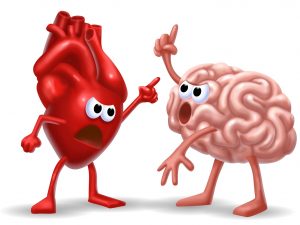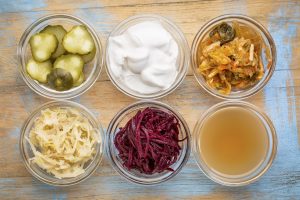 There’s nothing better than coming home after a long and stressful day of work or school, and having a happy wagging tail waiting at the door for you. Owning a pet involves a lot of work and cost. However, studies show that a pet may be worth the time and money for the good of your health. A recent study review has shown that having a pet can decrease anxiety and provide overall benefits to anyone suffering from mental health issues.
There’s nothing better than coming home after a long and stressful day of work or school, and having a happy wagging tail waiting at the door for you. Owning a pet involves a lot of work and cost. However, studies show that a pet may be worth the time and money for the good of your health. A recent study review has shown that having a pet can decrease anxiety and provide overall benefits to anyone suffering from mental health issues.
About Mental Health and Anxiety
According to the World Health Organization (WHO), mental health is a “state of well being” in which a person can lead a productive life while being able to deal with the normal daily stresses of life. The National Alliance on Mental Illness reports that mental illnesses are not just the result of one event. However, such a state of being involves multiple factors such as genetics, environment, and lifestyle.
Examples of mental health conditions include:
- Anxiety Disorders
- Bipolar Disorder
- Depression
- Eating Disorders
- Post-traumatic Stress Disorder (PTSD)
- Schizoaffective Disorder
- Schizophrenia
According to the American Psychiatric Association, anxiety disorders are the most common mental health disorders. In particular, about 30-percent of adults deal with such a disorder at some point in their life. Anxiety disorders are not just everyday stress or worry. On the contrary, those with such disorders worry or fear that may be seen as “abnormal” in certain situations. This fear or worry can result in disruption of their daily life.
For example, it may be “normal” to worry about taking a test. However, someone with anxiety disorder may have a similar level of worry and stress when having to talk with someone at the store. On the other hand, a person with the disorder may lose sleep because they worry that if they leave the house tomorrow that something bad may happen to them. These are just some examples of how anxiety disorder can manifest. However, this condition can come in many forms such as:
- generalized anxiety disorder
- panic disorder
- phobias, or fears, such as agoraphobia (fear of public places)
- social anxiety disorder
- separation anxiety disorder
Pets and Mental Health Benefits
An analysis of 17 studies reported in BMC Psychiatry found that having a pet may help those with mental health disorders. Results of this study review found that pets had the following positive impacts on mental health:
- One study interviewed some people who had depression, schizophrenia, bipolar disorder, or post-traumatic stress disorder. Subjects reported feeling more secure and stable with a pet in their lives.
- Another study reported that those with a pet had lower levels of anxiety and a lower average body mass index.
- Pets can provide unconditional love as well as support without judgment. In turn, this can help those with mental health issues cope if they are not getting such support from their family and friends.
- Pets forced their owners to stay connected with the outside world and be more active. Besides helping those with mental health issues to connect with others, the act of going outside is also very helpful to overall health. For one thing, getting outside can help people get sunlight that helps make sure they get enough vitamin D, which can affect mental health. Also, mental health may benefit from the act of exercise.
Researchers suggest that mental health care plans should include asking patients with mental health issues to get a pet. However, more studies need to be done to figure out how pets could play in the lives of patients and in treatment plans.
Other ways to help improve your mental health
Besides having a pet, there are some other things you can do to help your mental health.
- Be mindful by living in the present moment. Talk with a counselor if you have troubles in your past that are stopping you from living in the moment. Also, take a yoga class, learn relaxing breathing techniques, or get a wellness app to help you find ways to stay calm each day and night.
- Eat balanced meals since sometimes low levels of certain vitamins or nutrients can make you feel more tired or nervous. Eat plenty of fiber-rich fruits and veggies to help keep your gut healthy. Also, make sure to eat enough protein each day such as meats, beans, low fat dairy products, nuts, and seeds. Low protein intake can cause you to feel tired. This is because protein-rich foods contain dopamine and tyrosine which keep you alert. Finally, make sure to eat some carbohydrate foods such as whole grains and cereals. This is because such foods increase “feel-good” serotonin in the body.
- Volunteer or help out a friend or loved one since such acts can help you feel better about yourself. Also, such acts can help you connect with others and perhaps help you to see how much you have to be grateful for.
- Get plenty of sleep since lack of sleep can greatly impact your mood. Set a bed time each night, avoid caffeine in the latter half of the day, and limit screen time at night to help you get more sleep.
- Visit your doctor to make sure your vitals are healthy and to get help for any symptoms that may be bothering you or affecting your daily life.
- Take a supplement such as Sereneo by Vita Sciences. Sereneo contains ingredients such as magnesium, chamomile, and valerian that promotes a boost in serotonin and supports stress and anxiety relief.
-written by Staci Gulbin, MS, MEd, RD, LDN
Sources:
American Psychiatric Association (January 2017) “What are anxiety disorders?”
Greenblatt, M.D., J.M. (November 14, 2011) “Psychological Consequences of Vitamin D Deficiency.”
Medical News Today (February 19, 2018) “It’s official: Pets benefit our mental health.”
National Alliance on Mental Illness (accessed February 20, 2018) ” Mental Health Conditions.”
Psychology Today (October 27, 2015) “9 Ways You Can Improve Your Mental Health Today.”
Weir, K. (December 2011) “The exercise effect.”
World Health Organization (August 2014) “Mental health: a state of well-being.”
 Vitamin D, known as the sunshine vitamin, is a very important nutrient for overall health. Best known for its work in helping strengthen bones and teeth, vitamin D is starting to get more attention for other benefits it could provide. A recent study reports that cells damaged by heart attack or stroke may be repaired by vitamin D3.
Vitamin D, known as the sunshine vitamin, is a very important nutrient for overall health. Best known for its work in helping strengthen bones and teeth, vitamin D is starting to get more attention for other benefits it could provide. A recent study reports that cells damaged by heart attack or stroke may be repaired by vitamin D3. Do you get stabbing abdominal cramps after eating a fatty meal? Does dairy or gluten cause uncomfortable gas and bloating? Are doctors unsure of the origin of your chronic constipation or diarrhea? If you answered yes to any of these questions, then you may have what is called Irritable Bowel Syndrome (IBS). Although changes in the diet may be helpful in many cases of IBS, research shows that vitamin D may also help those with this condition.
Do you get stabbing abdominal cramps after eating a fatty meal? Does dairy or gluten cause uncomfortable gas and bloating? Are doctors unsure of the origin of your chronic constipation or diarrhea? If you answered yes to any of these questions, then you may have what is called Irritable Bowel Syndrome (IBS). Although changes in the diet may be helpful in many cases of IBS, research shows that vitamin D may also help those with this condition.
 On a cold winter’s day there is nothing better than a hot cup of tea to warm you up. Depending upon the type of tea you consume, this warm beverage could provide you with a variety of different antioxidants to help benefit your health. In fact, a recent study has shown that a cup of hot tea every day may help reduce glaucoma risk.
On a cold winter’s day there is nothing better than a hot cup of tea to warm you up. Depending upon the type of tea you consume, this warm beverage could provide you with a variety of different antioxidants to help benefit your health. In fact, a recent study has shown that a cup of hot tea every day may help reduce glaucoma risk. Are you looking for a more natural way to deal with your rheumatoid arthritis pain? Some prescription medicines may make you feel foggy, cause stomach ulcers, or cause weight gain. However, recent studies have shown that more natural antioxidants may help reduce rheumatoid arthritis pain without so many side effects.
Are you looking for a more natural way to deal with your rheumatoid arthritis pain? Some prescription medicines may make you feel foggy, cause stomach ulcers, or cause weight gain. However, recent studies have shown that more natural antioxidants may help reduce rheumatoid arthritis pain without so many side effects. A journal article in the Frontiers in Nutrition suggested that fiber-rich and antioxidant-rich foods may decrease inflammation in those with RA. Furthermore, it was suggested to get such benefits from some of the following foods and drinks.
A journal article in the Frontiers in Nutrition suggested that fiber-rich and antioxidant-rich foods may decrease inflammation in those with RA. Furthermore, it was suggested to get such benefits from some of the following foods and drinks.
 If you have ever had a migraine headache, you know the pain is so intense that a trip to the hospital may be in store. In this case, the ER staff may use an opioid pain medicine as a first resort. However, a recent study has shown that this commonly used drug, also known for its addictive qualities, may not be the best choice for migraine relief.
If you have ever had a migraine headache, you know the pain is so intense that a trip to the hospital may be in store. In this case, the ER staff may use an opioid pain medicine as a first resort. However, a recent study has shown that this commonly used drug, also known for its addictive qualities, may not be the best choice for migraine relief.